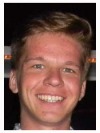 ANTON PROTASOV, restorative mediator
ANTON PROTASOV, restorative mediator
“Our emerging world society necessitates the broadening of our consciousnesses and the willingness to develop a new awareness, a new way of being in this world, a new mental mapping.” — Anton Protasov
Slavic Russians had subdued and outnumbered the native Siberian Altai people in Anton Protasov’s homeland by 1921, and as a descendant of that era, he considers himself a Russian Siberian. His is the principle cultural group in the Altayskiy kray, now part of the modern day Russian Federation, but ethnic conflicts among the hundred-plus nationalities are escalating. (Kray designates an administrative district.) Xenophobia and intolerance to others create tension and threats of violence throughout the area.
Throughout antiquity, many people traveling along the ancient trade routes of the Silk Road stopped along their journey as they crossed the Steppes of Russia and settled in the Altai region of Siberia. The purges and exiles under Stalin sent waves of prisoners and refugees to the area. Today, economic and political upheavals add to the population’s complexity along border regions like the Altayskiy kray in an ongoing influx of ethnically diverse settlers and migrant workers. The current wave is from Central Asia, particularly the troubled post-Soviet states. Cultures clash and people can’t communicate because of many different languages.
Drawn to finding solutions, Anton majored in political science. He became a member of the German-Russian Youth Parliament, working in a committee for international conflict resolutions with a focus on a Russian and German policy of multiculturalism and tolerance. They explored the involvement of NGOs in the peace-building process, and Anton emphasized the importance of teaching mediation in schools.
He convinced the committee to pass a resolution on the use of mediation in the process of multicultural conflict resolution, which was later presented during the meeting of Vladimir Putin and Angela Merkel at the 2012 Petersburg Dialogue forum, a semi-annual event alternately held in Germany and Russia. This particular session took place in the Kremlin. The Youth Parliament’s resolution passed as a recommendation and was sent to the main governmental bodies of Russia and Germany.
During that same year, 2012, Anton became an exchange student at the Tallinn and Tartu Universities, both in Estonia. During the 2013 fall semester, he made an even greater leap, enrolling at the University of Central Missouri in Warrensburg, Missouri and continued his studies in political science with a 4.0 GPA. The American experience in conflict resolution fascinates him. “The United States of America is the greatest example of gathering people of different nationalities together,” Anton says. One reason for participating in HSI came from his desire to get closer to the American values in our approach to solving multi-cultural problems.
Anton is now a senior at the Altai State University, earning a GPA of 5.0 out of 5.0. Through a partnership between the Center for Judicial and Legal Reform in Moscow and the Russian Association for Restorative Mediators, Anton contributes to the development of reconciliation services in order to implement the restorative approach along with restorative mediation programs to the educational system of Russia. “I am sure that these programs can help to reduce intolerance, xenophobia and conflict potential in the Russian educational system,” he says and is passionately committed to the endeavor. He points to several successful examples in different Russian multicultural regions. As a team member of the Mediation Academy, he works “really hard” to spread the ideas of the restorative justice and restorative mediation in Altayskiy kray. In cooperation with Altai Rehabilitation Center for Children, he organized a summer camp for young offenders. The main goal of the summer camp was to provide children from the Center with skills of conflict resolution as well as leadership skills.
This led Anton to launch a mediation academy to be held at three supportive schools. His endeavor won startup fees from HSI for printing the fifty-six-page handbooks for use at a series of nine tuition-based workshops. Anton will no doubt play a significant role in the new “mental mapping” that leads to successful conflict resolution.
